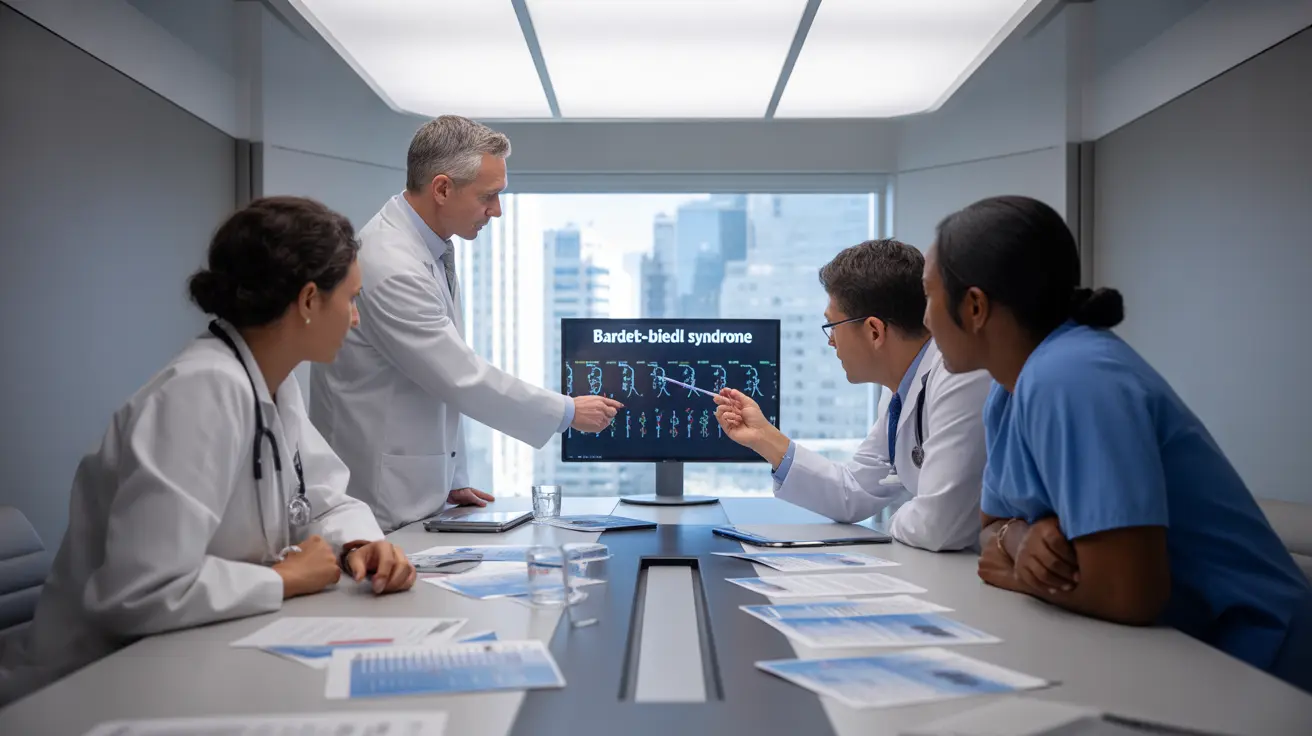Bardet-Biedl syndrome (BBS) is a complex genetic disorder that affects multiple body systems, requiring a comprehensive treatment approach. While there is no cure for BBS, various treatment options can help manage symptoms and improve quality of life for affected individuals.
Understanding the available treatments and emerging therapies is crucial for patients, families, and healthcare providers to develop effective management strategies. This guide explores current treatment options, specialized care approaches, and promising new developments in BBS treatment.
Core Treatment Approaches for Bardet-Biedl Syndrome
Treatment for Bardet-Biedl syndrome typically involves a multi-faceted approach targeting specific symptoms and complications. The management strategy must be tailored to each individual's needs, as symptoms can vary significantly among patients.
Managing Obesity and Appetite Control
Obesity management is a crucial component of BBS treatment. Recent developments include:
- Setmelanotide (Imcivree) - FDA-approved medication specifically for BBS-related obesity
- Structured dietary interventions
- Regular physical activity programs
- Behavioral therapy for appetite management
Vision Care and Management
Progressive vision loss is a common concern in BBS, requiring proactive management:
- Regular ophthalmological examinations
- Low vision aids and adaptive technologies
- Orientation and mobility training
- Regular monitoring of retinal degeneration
Kidney Function Treatment
Kidney-related complications require careful monitoring and management:
- Regular kidney function tests
- Blood pressure management
- Dietary modifications
- Medications to protect kidney function
- Dialysis or transplantation when necessary
Specialized Care Team Coordination
Effective BBS treatment requires coordination among multiple specialists:
- Geneticists
- Endocrinologists
- Ophthalmologists
- Nephrologists
- Cardiologists
- Nutritionists
- Physical therapists
- Mental health professionals
Emerging Treatment Options
Several promising therapies are under development or in clinical trials:
Novel Medications
New therapeutic approaches include:
- GLP-1 receptor agonists for weight management
- Gene therapy research
- Targeted molecular therapies
- Clinical trials for retinal preservation
Innovative Support Strategies
Advanced support mechanisms include:
- Digital health monitoring tools
- Telemedicine coordination
- Support group networks
- Educational resources for families
Frequently Asked Questions
What are the main treatment options available to manage Bardet-Biedl syndrome symptoms?
The main treatment options include medications like setmelanotide for weight management, regular vision care, kidney function monitoring, dietary interventions, and coordinated care from multiple specialists. Treatment plans are individualized based on specific symptoms and complications.
How does setmelanotide help with obesity and hyperphagia in Bardet-Biedl syndrome patients?
Setmelanotide works by targeting the MC4R pathway in the brain, helping to regulate appetite and energy expenditure. This FDA-approved medication has shown significant effectiveness in reducing hunger and promoting weight loss in BBS patients.
What specialists are involved in the multidisciplinary care of Bardet-Biedl syndrome?
BBS care typically involves geneticists, endocrinologists, ophthalmologists, nephrologists, cardiologists, nutritionists, physical therapists, and mental health professionals. This team works together to address the various aspects of the condition.
Are there effective strategies for managing kidney problems and vision loss in Bardet-Biedl syndrome?
Yes, kidney problems are managed through regular monitoring, medication, and dietary modifications, while vision loss is addressed through regular ophthalmological care, adaptive technologies, and mobility training. Early intervention and consistent monitoring are crucial for both complications.
What emerging therapies, such as GLP-1 receptor agonists or gene therapy, show promise for Bardet-Biedl syndrome treatment?
Promising emerging therapies include GLP-1 receptor agonists for weight management, gene therapy research targeting specific BBS genes, and new molecular therapies. Clinical trials are ongoing to evaluate these potential treatments' safety and effectiveness.
While Bardet-Biedl syndrome presents significant challenges, ongoing advances in treatment options continue to improve the outlook for affected individuals. Regular medical supervision and adherence to comprehensive treatment plans remain essential for optimal outcomes.




